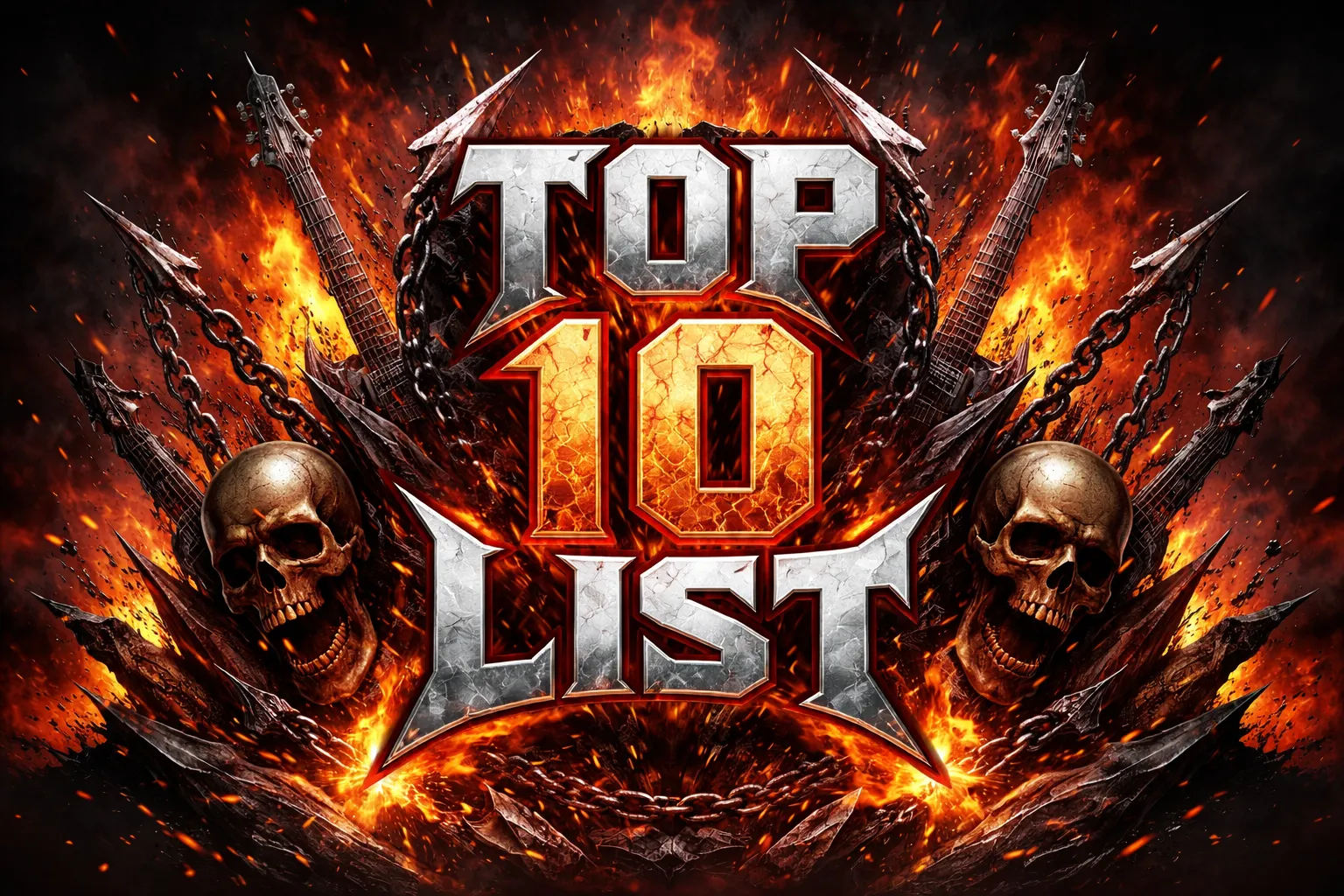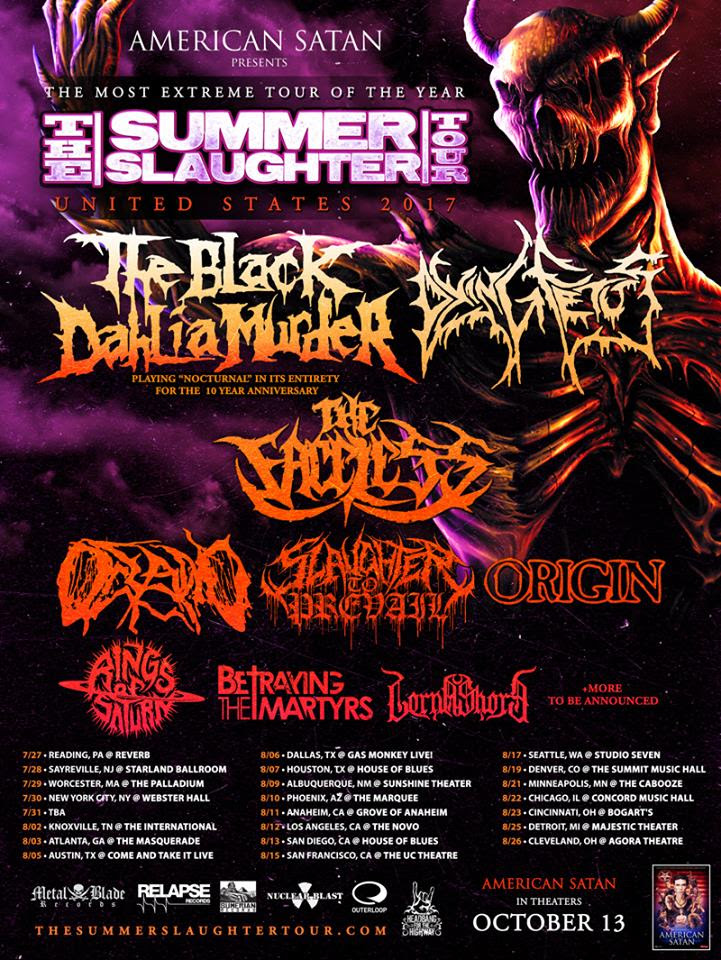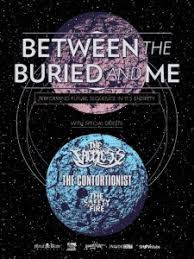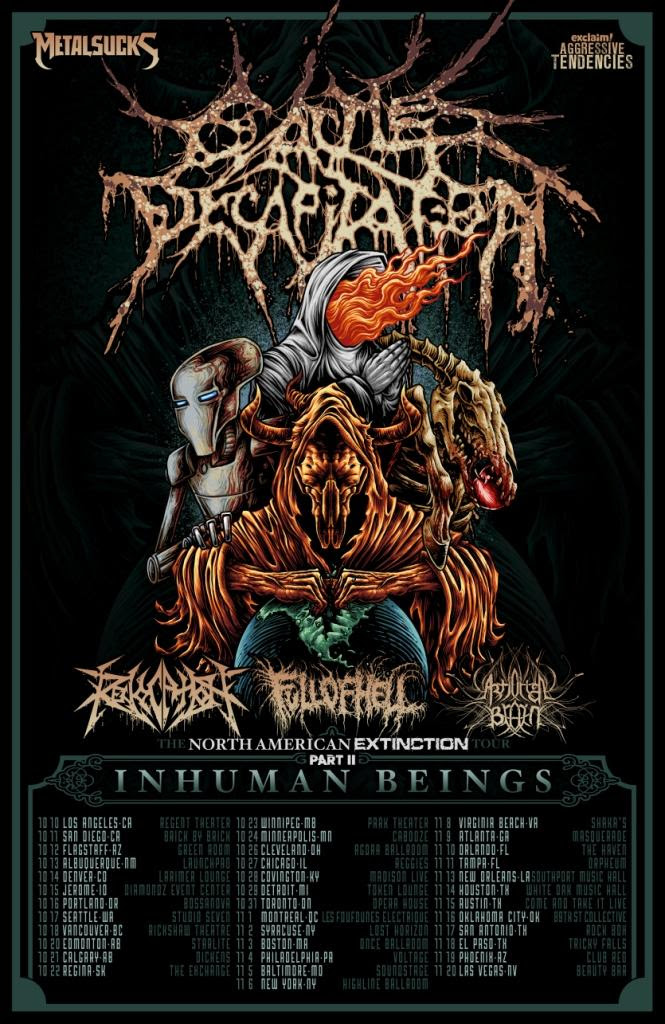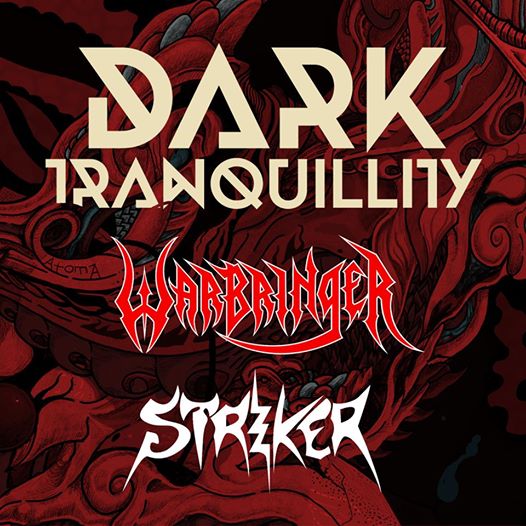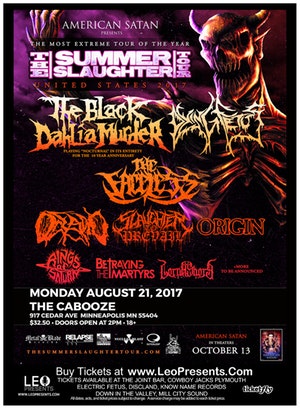Pig Destroyer Interview
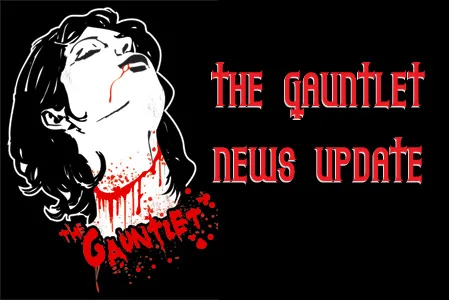 5 a.m. is pretty early in the morning. Usually, at 5 a.m. it's time to think of things like watching the backs of your eyelids, getting up to empty the old' bladder or cracking a few eggs and frying up some bacon. On this particular morning, the agenda was a heavy dose of grindcore splattered with a bloody bucket of gore. Erin Fox and J. R. Hayes of Pig Destroyer set down for some intellectually stimulating words concerning personal responsibility, breast censorship and most importantly, music that is pure grinding madness...
5 a.m. is pretty early in the morning. Usually, at 5 a.m. it's time to think of things like watching the backs of your eyelids, getting up to empty the old' bladder or cracking a few eggs and frying up some bacon. On this particular morning, the agenda was a heavy dose of grindcore splattered with a bloody bucket of gore. Erin Fox and J. R. Hayes of Pig Destroyer set down for some intellectually stimulating words concerning personal responsibility, breast censorship and most importantly, music that is pure grinding madness...The Gauntlet: Has the band started playing shows in support of 'Terrifyer'?
J.R. Hayes: No, not really. We've been trying. We were supposed to go to Spain in early January but there was a big mix up at the airport, flight got cancelled, so, that didn't work out. So, I think the next thing we're playing, going down to Texas to play that South by Southwest.
The Gauntlet: That's going to be a great bill; I'm looking forward to it.
JH: We haven't been down there yet, so it's going to be pretty fun for us. I wish it was a regular show as opposed to the big festival, industry things, but you know. That seems to be all we do anymore.
TG: Well, let's talk about the new album a bit. What is the story behind 'Natasha'? It's such an interesting piece that is so unlike your other material.
JH: Yeah, that was the general idea, I think. You know, we were working on the other CD and you know, Scott wanted to get into something else. The funny thing about Scott is you never know when he's going to pull out some kind of crazy idea like that, you know? It wasn't as if we didn't already have our hands full. He was looking for a new challenge and he had just got this new software where he had the ability to mix in 5.1 sound. He was looking forward to trying to write, and record and mix a song in that format. We wanted to do something kind of slow and a little longer. You know, we're a band that's used to having to work in a two minute song format and we wanted to see what it was like to not have to worry about time and just let it roll and the song came out to be about 40 minutes long. It's a complicated piece; it was really complicated to record
TG: How long did it take to put the whole package together?
JH: Both of the discs together and all of the artwork and everything else, it took us about two and a half years. That's because we're not like a full time band in the traditional sense of the word. We don't like take off two weeks and record, you know what I mean? It's not something we do all at once. We work at our regular jobs and do all of our other stuff and kind of get together on the weekends or on the occasional weekday, you know, and just kind of hash it out. That's the way we like to work anyway, we just kind of take our time.
TG: Do you feel like working this way gives you some time to reflect on the material so you know which ideas you really want to go with?
JH: Absolutely, absolutely. I really think that it's part of what gives the band our energy. Not only that we do all of this ourselves, I mean, Scott does the production aspect of it. Just not having to worry about studio time and producers or any of that horseshit. Because we've worked in other people's studios in the past on some of our older records. When you're on the clock, it's a totally different type of atmosphere. You can feel rushed, you know, and a lot of times you end up settling for something that you know doesn't meet the full potential of what you're working with. You're just kind of doing it 'cause you're out of money, or out of time.
TG: It creates a lot more pressure...
JH: Yeah, there's the pressure aspect of it. The fact that we have all of our own recording equipment and Scott is able to do all of these things on his own time. Scott probably did twenty different mixes for this record that we were able to take home and dissect and give feedback on and eventually improve on because we had the time to do it. And that's the way we work and we are so comfortable working that way now, that I don't think that we could ever go back to a regular studio.
TG: So do you believe that the technology that is available to bands now is resulting in a lot more creativity because the artists can record the material on their own terms in an environment that is more comfortable to them?
JH: I think it is, but you know I'm also a believer in the human element of it. Because, you can have really shitty equipment and get a great sound out of it if you have someone that has a great ear. All of the state of the art equipment in the world isn't going to do you any good if you have a producer who is a fucking moron. Scott just has a great ear and he knows how to make things really loud and aggressive. Like our 'Prowler In The Yard' album, we did that on what was essentially an eight track, but he can make it sound like a real studio because he's just that talented.
TG: So tell us a bit about Terrifyer, the first disc. How do the new songs contrast with what you have done in the past? Do you feel that this material is similar to what fans heard on the 'Prowler In The Yard' album? Is it a departure or evolution, or have you pretty much stuck with the same focus as before?
JH: It's a bit of both I think and I think that's what you want when you do a new record. You don't want to alienate your fans and you don't want to, certainly, want to alienate yourself from your own music. But at the same time you have to be a little different or you're not going to give anybody a reason to check out your new record. I think we just looked at "Prowler", as we consider that it's the best record that we've done, so we kind of used that as a blueprint, so to speak. I wrote songs kind of in the same vein and just tried to improve on the arrangements and the subtleties of the songwriting. Because you look back on your old albums, as time passes and you realize. You start to kind of see the chinks in the armor and you're like "Oh, we could have done that better" or "Oh, that's a bad arrangement". Things make themselves known and you can try to not make those same mistakes again.
TG: Which tracks stand out to you on this album on a personal level? Which pieces do you feel turned out the best in the studio?
JH: I really like the way that the title track came out, the last song on the first CD. That might have been the first song that we actually recorded vocals for, and I just remember being really excited about how that one came out. It felt like we were getting off on the right foot, I don't know, we really had a lot of fun doing all of them. Drank a LOT of alcohol. And I have pretty good memories of the whole thing. We actually had more songs than we needed, so it was really just a matter of picking our favorite ones, there's really not any songs on the CD that I don't dig. I think the second song; 'Boy Constrictor' is a favorite of mine, 'cause it's a nice little, compact grindcore song. I'm always a big fan of the really short ones.
TG: Do you feel with the inclusion of 'Natasha' that the fans might perceive that Pig Destroyer is moving away from its grindcore roots?
JH: I mean, yeah. We don't really think about how we're perceived. I think that there's always going to be people that are going to pigeonhole you, that's part of being a band. I think in other types of art people...like say you make a horror movie, and people know it's a horror movie and you know it's always going to be in the horror section. We're not trying to make it into the Rock/Pop section, we're not trying to have our CD sitting next to U2 in the record stores, and I mean we don't give a fuck. Because you can't control what other people think you are, because people are just going to make up their mind anyway. We just kind of do what we want to do, when we want to do it. That's part of the thing that we like about our band, we don't have to worry about paying our bills, we don't have to live off of it, so it's just kind of anarchy, where we just follow our hearts and do what we want. That's kind of what 'Natasha' was to us. We didn't even know if it was going to work. We didn't know if we'd get to a certain point and have to just scrap the whole thing. It was kind of diving into the unknown for us, and I look forward to doing that again, when we do another record.
TG: Do you ever plan to attempt to perform that track live?
JH: Um, We've talked about it. We would need at least, probably another five musicians to pull it off in a live format. We'd have to have probably two bass players, one or two guitar players at least one or two other people to run samples and you know, I've entertained the idea, but getting other people around to rehearse something like that, it would be very difficult.
TG: Let's talk for a moment about your lyrical concepts. You deal with some really graphic material that paints a pretty shocking visual picture. What is the reason you choose to go with such extreme material, obviously the music itself is very extreme and the lyrics serve to push things over the top a bit...
JH: I don't think it's me singling out anything really. I'm in what essentially amounts to a death metal band and you know I just feel that the aesthetic that goes along with that is negative, evil, dark imagery which I've always been attracted to through some of the authors that I love...I've always been fascinated with that kind of imagery and making things really visual. I don't really reflect on it that much. Usually when I feel like writing, it's when I am really angry or really sad and that's just the kind of stuff that comes out. I'm not a...I don't know, I just never feel the urge to write about happy shit, so, I like the dark stuff.
TG: Do you believe that by choosing to display such a graphic visual image on the album cover that it makes it more difficult for the band to break into certain commercial markets with the record?
JH: You know, we've had some tangles with that. When we originally did the artwork, Relapse, they're trying to get it out to places like Best Buy and Hot Topic, you know, places that don't really have any backbone when it comes to things like that. And if it were up to me, we wouldn't even sell our record in places like that. It's a "If you can't stand the heat, stay out of the kitchen thing", in my opinion. But, being a record label, they want to get it out there and obviously have a different idea. I don't know if you've seen the covered up version of it, they put a sticker over her breasts on the original version. Then, there's a version that has an extra cover that just goes over top of that, so the original artwork's included, but it's got another piece over that so you can get it into pussy stores like Hot Topic. We tangled over that and I was cool with it as long as the original artwork was in there, I didn't want it altered. That's a compromise that you make. It was the same compromise we made when Relapse asked us to do a video and we don't like videos and we don't really want to do them. But, it's a compromise and they work really hard for us, so I try to compromise when I can. I knew that that's what I wanted for the cover, and I don't care. It's just naked breasts, come on people need to grow the fuck up. I think it's a beautiful picture and if people don't like it, then they have the problem as far as I'm concerned.
TG: It's certainly attention getting...
JH: This is a thing that you cannot avoid, especially as a metal band. Anytime that you use any imagery that someone could deem controversial, like a nude girl or when you're talking about murder and all that kind of shit. People accuse you of shock, you know? Just trying to shock and there's no way you can escape it and if that's what people want to think about us, then that's fine. We just do what we do.
TG: Horror movies do so well sales-wise, don't you think that there really is a pretty large market for this type of art? It seems like the bands are not received as well, they don't get the promotion and support that the movies enjoy. Why is it so hard for bands to break into a wide audience when you have Freddy and Jason going at it on the screen?
JH: I don't know, it's weird. I've had a lot of conversations about this kind of thing because there really is a double standard when it comes to music. You can draw parallels, in music you have Slayer and in movies you have Kraven and in literature, you have Stephen King and to me there really is no difference. The only difference, really, is the medium. It seems like in music, people have a much harder time distinguishing fantasy from reality.
TG: Do you think it is because it is a real person singing onstage, as opposed to a face on a screen or words in a book?
JH: I think so. I'm a really big fan of the Geto Boys; they're my favorite hip-hop group. And you listen to their rhymes, and I understand why some people get upset about it, but I'm thinking, you know, have you ever seen 'Scarface', have you seen 'King Of New York'? You watch these movies that are about these drug dealers and people just know that they are movies. But people can't listen to a Geto Boys album and think, "Hey, it's just an album". People just take music so much more seriously for some reason, because I write about killing girlfriends and all this other nonsense that that's what I do in my spare time. People can't distinguish the fact from fiction. You know, fiction there's a whole section in the library for it, if you go and come on, people, grow up, you know? I hate telling grown people to grow up, because they don't take it very well, they really need to.
TG: So do you feel that some responsibility here falls upon parents. If the parents aren't explaining it to their kids...of course, anytime that someone's going to have a really big problem with it is when children are listening to the music and some people might feel that the music has a negative influence. So do you think the biggest problem here is that the parents do not teach their children "Hey, this is what is real and this is what fiction is" and that there is a difference between the two?
JH: I think it's that. I think that it's also that people are idiots in general and they're reactionary and they see words or ideas that they're not comfortable with. And if they're not comfortable with it, then they don't want anyone else seeing it. Really, what it amounts to is how far you really want to stick your nose in other people's business. I mean, there's a lot of things in the world that I think are shit, that I wonder why other people listen to but I don't ever try to make other people stop listening to it, know what I'm saying? So, I don't know I just think that if you know what you believe, and you know how you feel about certain things, your beliefs should be able to stand up to criticism. You have to be able to look at something and enjoy something without being influenced by it. My mom used to burn my Kreator tapes when I was eleven years old, because she thought I was poisoning my mind, and it's like "Mom, no it's just a tape, and I understand the difference". It's the same way where if you sit down and read 'Mein Kampf', it doesn't make you a Nazi; anymore than reading the bible makes you a Christian. It's just information, and information is always good, I think. They can't handle it. They can't deal with something that goes against what they believe because, because they're scared. Or they're lazy.
TG: It's that line of personal responsibility where you decide by which things you are going to be influenced. In the end, it's a personal decision, not outside motivators that affect the outcome.
JH: Well, again, it's just making that separation between fantasy and reality. I remember watching; when I was a little kid I was a big fan of Ice-T and still am, I remember watching them on a talk show. And a talk show, of course is where all of the housewives go. And they're freaking out about, him talking about sticking a flashlight in some girl's ass or something, whatever the hell he was rhyming about, you know? And the "Cop Killer" thing came up, with his "Cop Killer" song and you would think he is actually killing cops with his song. It was so controversial. If you ever watched the first Terminator, you watch Arnold Schwarzenegger walk into a police station and gun down about forty cops, but nobody looks at Arnold and says "Oh my God, that's fucking terrible", you know? Because it's a fucking movie. And so Ice-T is trying to articulate to these people, like, "Hey, I'm not really a gangster, I'm a fucking musician". Seriously you fucking feel like you're crazy, like you're taking fucking crazy pills talking to these people. It's just one of those things where you feel like you're the only sane person in the world and you're surrounded by people who don't know what the fuck is going on.
TG: So, at the end of the day, what drives you to make grindcore music? You've mentioned that you like rap a couple of times, why to you choose to go in this type of a musical direction?
JH: Oh, I like all kinds of things. I like Hank Williams, I like Bjork. Music is music to me and I don't get so hung up on genres really.
TG: That's really cool. I always enjoy talking with musicians that enjoy a well rounded cross-section of music. It gets me down when a certain musician only likes a certain style. You know the guy that only likes black metal or only listens to one type of thing and can't get past a certain type of image or get out of that little corner they've painted themselves into. No matter what the genre is, the genre is necessary for communication, so you can describe the music to another person so they can know if they might be interested in it. But when the genre becomes a set of rules that you have to follow, and then it's just kind of missing the whole point. Defining musical tastes by boxing it into a particular sub-genre is just missing the whole point.
JH: I used to be like that when I was, like, fourteen, and I thought Slayer was just the greatest band in the world and that if you weren't faster or heavier than Slayer, then I had no use for it. As you get older you get over that. Well, hopefully you do. You expose yourself to different things, there's so much shit out there. It's not just music, its movies and books and there's so much great art out there that people never get exposed to. But it's just like anything; some people pride themselves on how willfully ignorant they are. Me, I like to sample things. Variety is the spice of life is what they say.
Read More News
Tags: Pig Destroyer , J. R. Hayes, interviews
Erin Fox February 26, 2005

